hidden
-


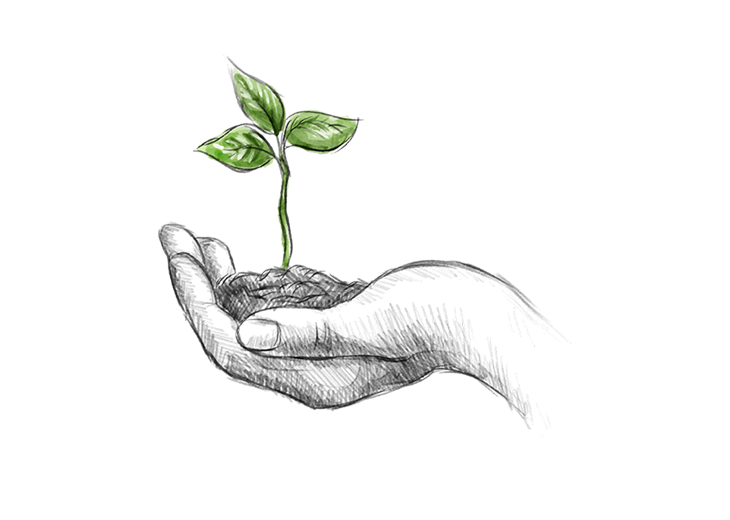


Eco-Tech
Disposal of chemical waste
Innovative project for the processing and disposal
of caprolactam production waste
Hazardous waste is any waste that can be detrimental to the environment. It may cause contamination of water supplies and habitats if incorrectly disposed. Recycling hazardous waste reduces risk of destructive effects on eco-systems. And enables to keep the local natural balance intact. Recycling enables various environmental and economic benefits, reducing the consumption of raw materials, pollution, energy use, and many others.
A global trend is the emerging pollution rate. And three major types of pollution are air pollution, water pollution and land pollution. According to the World Health Organization’s (WHO) Air Quality Guideline, more than 90% of the world population was exposed to unhealthy air in 2017. Air pollution is one of the world’s leading risk factors for millions death each year. Globally, air pollution contributed to 11.64692768558896% of deaths in 2021. According to the United Nations Office for the Coordination of Humanitarian Affairs, highest contribution to soil pollution is caused by human activity. And according to available 2021 statistics from the Center for American Progress, over 2.5 million acres of ponds, reservoirs, and lakes are unsafe due to nutrient pollution in the US only.
Nevertheless, pollution can be controlled. And in order to control it, we must understand that we need to eliminate it completely. Extraction, refining, transportation, and processing of new raw materials can have a significant impact on the environment. This also results in the increased energy consumption and carbon dioxide (CO2) emissions. And these activities currently account for 45% of CO2 emissions in the European Union (EU). Consequently, hazardous waste recycling can mean less air, water and soil pollution.
Moreover, hazardous waste recycling leads to reduction of greenhouse gases (GHGs) emissions. Recycling of pre-existing waste means less energy is needed to obtain raw materials and to manufacture products. When energy demand decreases, fewer fossil fuels are burned and less GHGs are emitted into the atmosphere, which can help lessen the impacts of climate change and decrease air pollution.
Reclamation of hazardous waste, thus, enables avoidance of environmental hazards, protection of scarce natural resources, reduction of the nation’s reliance on raw materials and energy, and provision of economic benefits.
Ecotech’s aim is to contribute to a safer, greener and more supportable environment in the Republic of Uzbekistan. Through actions, Echo Tech strives to show an example that through collective effort we can make our country better, more stable and sustainable for generations to come.
Today, industrial waste from the production of caprolactam are conserved in specific concrete storage facilities, which are flammable and environmentally hazardous substances. The approximate composition of the waste is:
Based on the results of the Ecotech’s own research, a technology was developed, and a plant was designed for the processing of caprolactam production waste, with the production of technical benzoic acid, with purity of at least 99%, and heating oil. The production is distinguished by increased environmental friendliness due to the fact that the isolation of benzoic acid is carried out in a closed cycle, with a constant return of the circulating extractant to the process of isolation of benzoic acid.
The unique technology for processing hazardous industrial waste is the property of Ecotech. And, at the moment, it is planned to carry out a comprehensive cleaning of four concrete pools with a volume of 22–25 thousand m3, with complete processing of up to 100 thousand tons of hazardous waste, on the basis of the storage facility of Maxam-Chirciq JSC. Ecotech project is continuous, operating 365 days a year. The number of service personnel, including engineering and technical workers, is 60–70 people.
Thus, Ecotech’s innovative solution seeks to contribute to the restoration of the ecological balance and improvement of the natural ecosystem of the Republic of Uzbekistan. By recycling hazardous waste, we are not only improving our nature today, but also thinking about future generations.

Our world is faced with increased levels globalisation. International environmental policy becomes of utmost importance in increasingly diverse conditions. And for our world population, international relationships and cooperation is the only way to solve many environmental problems which extend beyond national borders. International environmental policy covers various areas. And some examples include climate protection, sustainable energy usage, preservation of biological and environmental diversity, sustainable waste management, hazardous substance protection, and many others.
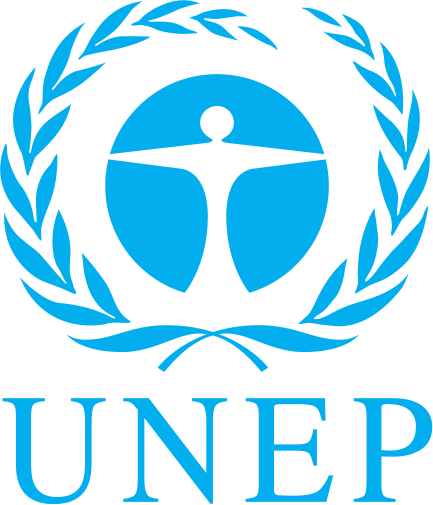
In 1972, the United Nations (UN) founded its United Nations Environmental Program (UNEP). Globally, UNEP has been the leading environmental authority. And it aims to ensure the strengthening of environmental standards and practices. And environmental obligations implementation at the country, regional and global levels. Through leadership and actions, UNEP strives to ensure improved life quality for current and future generations.
UNEP Sustainability Action is crucial for more sustainable future in the light of many challenges our world is faced with. This Action aims to tackle climate change, biodiversity conservation, responsible use of recourses, and many other obstacles. In a form of an international and intersectoral platform, UNEP Sustainability Action connects organisations, governments, citizens, and promotes sustainability with a focus on environments and resource efficiency.
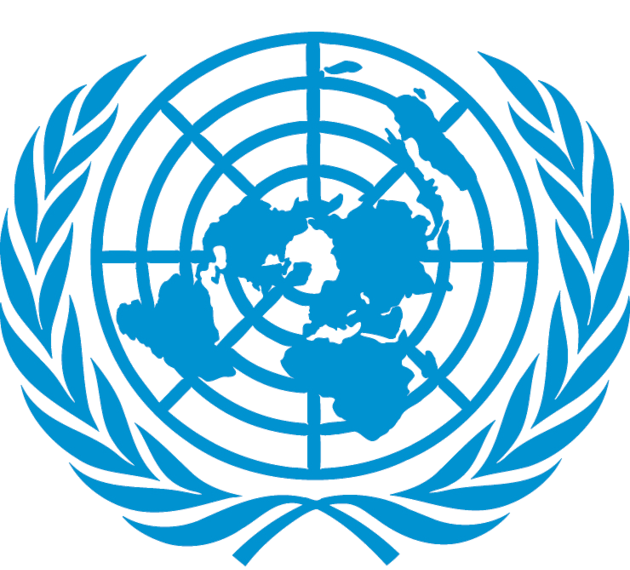
The United Nations Development Programme (UNDP) in the Republic of Uzbekistan is operating since 1993. UNDP cooperation with the Government, focuses on overcoming national development challenges, building resilience, and sustaining progress. UNDP is the UN’s development agency and has a crucial role in achieving the Sustainable Development Goals (SDGs), also known as Global Goals. In 2015, UN adopted SDGs to ensure that people worldwide enjoy peace and prosperity by 2030. SDGs are interlinked since actions in one area affect outcomes in other areas. And therefore, development and progress must ensure a balance between social, economic, and environmental sustainability.

Since 1970s, the European Union (EU) has been protecting the environment with the reliance in the economic prosperity and environmental protection interdependence. And the current EU environmental protection policy is the 2050 vision for sustainability. The vision is that to live well within the planet’s ecological limits. To achieve its aim, various policies were implemented since 2014. And some focus on protection of nature, air, climate, and adaptation of waste management and circular economy.
For instance, to protect nature, the EU implemented biodiversity protection rules. To enhance air quality, limits were set out on amounts of key pollutants that can be emitted. To enhance climate stability, policies set out the 2030 greenhouse gas emission targets, and decarbonation measures in the transport sector. To enable waste management, new recycling targets, plastic use restrictions, and limits on waste landfilling, were introduced. To protect the environment and human health, a circular economy transition aims were set out. Furthermore, many other various actions, legislative initiatives and thematic strategies are in place to ensure the EU targets are achieved in the long term.
Heating oil
Ecotech plans to use heating oil obtained from the processing of waste from the
chemical production of caprolactam for the industrial purposes as part of the project.
Heating oil is often used in industrial conditions. For instance, in boilers, furnaces
or water heaters, for heating. Moreover, it can also be used to generate electricity.
Heating oil can clean systems and improve equipment performance. And is clean and
reliable to work in difficult conditions due to its stable and non-explosive nature. In this
way, Ecotech will use safe, efficient, and sustainable heating fuel within its own closed
production cycle. And this, in turn, will help to reduce costs and dependence on raw
materials.
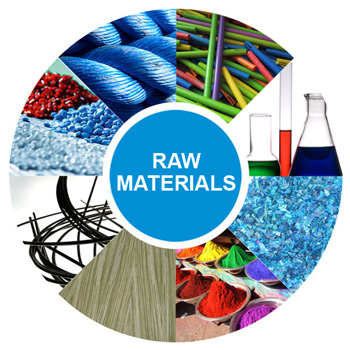
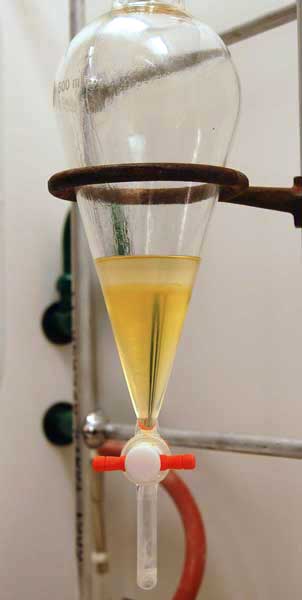

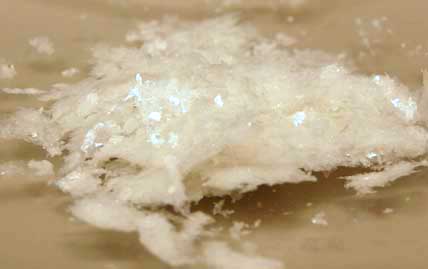
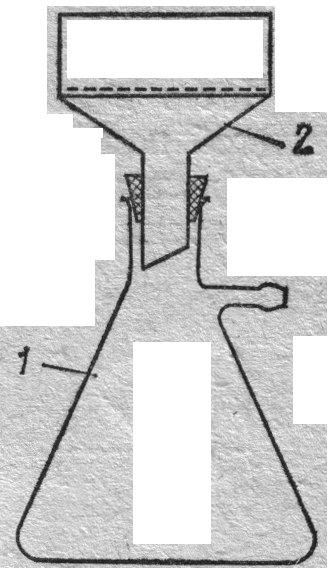
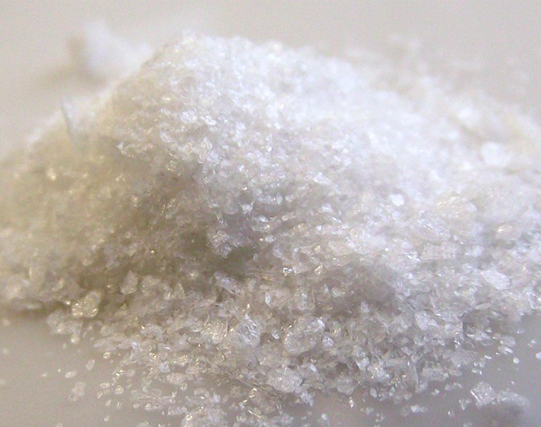

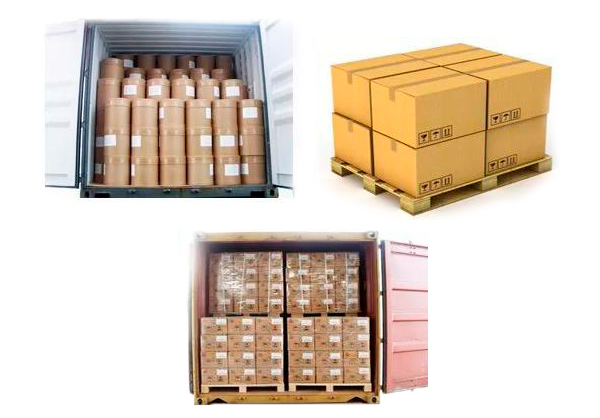
• Benzoic acid (C7H6O2) is a colourless crystalline compound. It is one of the benzoates, which also includes sodium benzoate and potassium benzoate.
• Foods where benzoic acid is naturally found in are cranberries, prunes, plums, cinnamon, ripe cloves, and most berries.
• Benzoic acid is a precursor to many chemical reactions to form organic compounds. It serves to obtain many reagents such as benzoyl chloride, benzoate plasticizers, phenol.
• Thus, in the pharmaceutical industry, the production of phenol is associated with the use of benzoic acid. The compound is used as an antimicrobial preservative, antifungal agent, and lubricant for tablets and capsules.
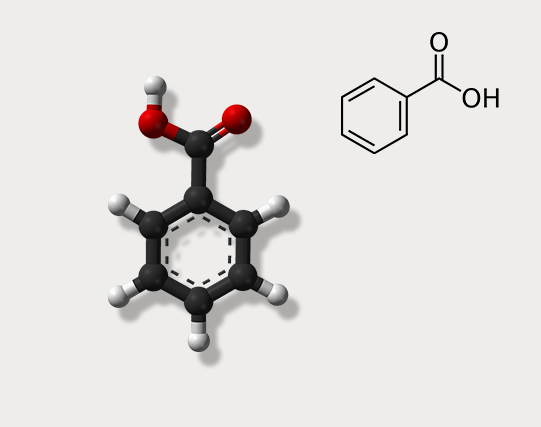
• In the food industry, benzoic acid is used as a preservative (food additives E210, E211, E212, E213). Also, benzoic acid can block enzymes and hence slow down metabolism in unicellular organisms.
• In cosmetics, benzoic acid is found in many products. For instance, in lipstick. Esters of benzoic acid (from methyl to amyl) have a strong odour and are used in perfumery. Also found in toothpaste, mouthwash, and face wash creams.
• This compound is used in the manufacture of dyes and insect repellents. Derivatives of benzoic acid, such as, for example, chloro- and nitrobenzoic acids, are widely used for the synthesis of dyes.
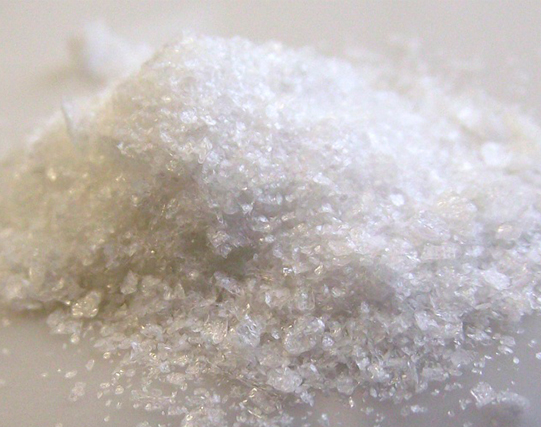
| Description of indicator | Norm for grade | |
|---|---|---|
| A OKP 24 7735 0100 |
B OKP 24 7735 0220 |
|
| 1. Appearance | Homogeneous crystalline powder from white to light pink colour | Powder or flakes from white to light beige |
| 2. Mass fraction of benzoic acid in the dried product, %, not less | 99.8 | 99.8 |
| 3. Mass fraction of phthalic acid in the dried product, %, no more | 0.15 | - |
| 4. Melting temperature of the dried product, ºС, not lower | 121.6 | 121.6 |
| 5. Mass fraction of water, %, no more | 0.2 | 0.1 |
| 6. Mass fraction of ash, %, no more | 0.1 | 0.008 |
| 7. Mass fraction of diphenyl, %, no more | - | 0.05 |
| 8. Mass fraction of benzyl benzoate, %, no more | - | 0.05 |
Due to the reform policy pursued by the Government of the Republic of Uzbekistan as part of the Action Strategy, the country has achieved significant results in sustainable development and increasing growth rates in the economy.
The mission of Ecotech is to contribute to the policy of the Republic of Uzbekistan of optimal macroeconomic and environmental planning and their further integration with other important policies.
The company’s activities are carried out within the framework of the policy of Sustainable Development and Nature Protection pursued by the Republic of Uzbekistan.
As part of its activities, the company makes a contribution to the implementation of decisions of the Administration of the Republic of Uzbekistan:
The circular economy is a modern, resource-efficient, and competitive economy. It is a model of production and consumption with an extended life cycle of products. Among other factors, it involves recycling existing materials and products for long periods of time and eliminating waste. And hence, it ensures creation of further value.
The world’s demography is growing. However, raw materials are finite. Moreover, extraction and usage of raw materials causes adverse consequences for the environment. Circular economy model hence leads to various benefits. And, for instance, it reduces environmental pressures and demand for extraction of raw materials. And further, it stimulates innovation, competitiveness, and economic growth.
According to the statistics of the European Parliament (EP) in 2022, the European Union (EU) produces 2.5 billion tonnes of waste annually. And therefore, a circular economy model is in place to contribute to proper waste administration. Moreover, according to the statistics, it would generate an additional 0.5% of gross domestic product (GDP), and create 700 000 jobs by 2030, only in the EU. Also, innovative durable products could increase consumer satisfaction and quality of life, and reduce expenses.
Thus, to comply with the EU 2050 vision of ensuring prosper and healthy environment, an innovative, circular economy is essential. And elimination of waste, sustainable management of natural resources, protection of biodiversity, and enhancement of people’s resilience, are in turn, enabled through this economical model.
Within the framework of the development of the New Uzbekistan for 2022-2026, various legislative acts and initiatives were implemented in the Republic of Uzbekistan. And these are aimed to enable fundamental reforms within the State.Large scale of works has been carried out to ensure environmental protection and rational use of natural resources. In order to ensure the socio-economic process of improvement the quality of environment and life in the Republic, the Concept for Environmental Protection of the Republic of Uzbekistan until 2030 (the Concept) was developed. Priority directions of the state policy are defined in the Concept. And their implementation is crucial for further sustainable development within the Republic, which is in the interest of current and future generations. And, moreover, effective mechanisms were introduced to prevent, detect and supress violations of environmental legislation.
The State implemented measures that prevent existing problems that are harmful for the public health. And, for instance, encourages initiatives in the international environmental arena. Improves mechanisms for assessing environmental pollution levels and monitoring their impact. Furthermore, measures to protect the ecology and environment by cleaning, greening, and ensuring sanitary protection were effectuated. And targets were set to eliminate households waste and increase recycling to 50 percent in 2026.
Measures to improve industrial waste management within the Republic were also introduced. And the State encourages private and governmental bodies to introduce high technologies for waste processing and institute favourable green entities. Many other measures were initiated and implemented to ensure proper protection of nature, ecological balance and sustainable future.
Tashkent city M. Ulugbek district. st. Oloy d. 23
Mobile : +998712639707
mail : info@ecotechgroup.tech
Mon-Fri: 9:00 to 18:00